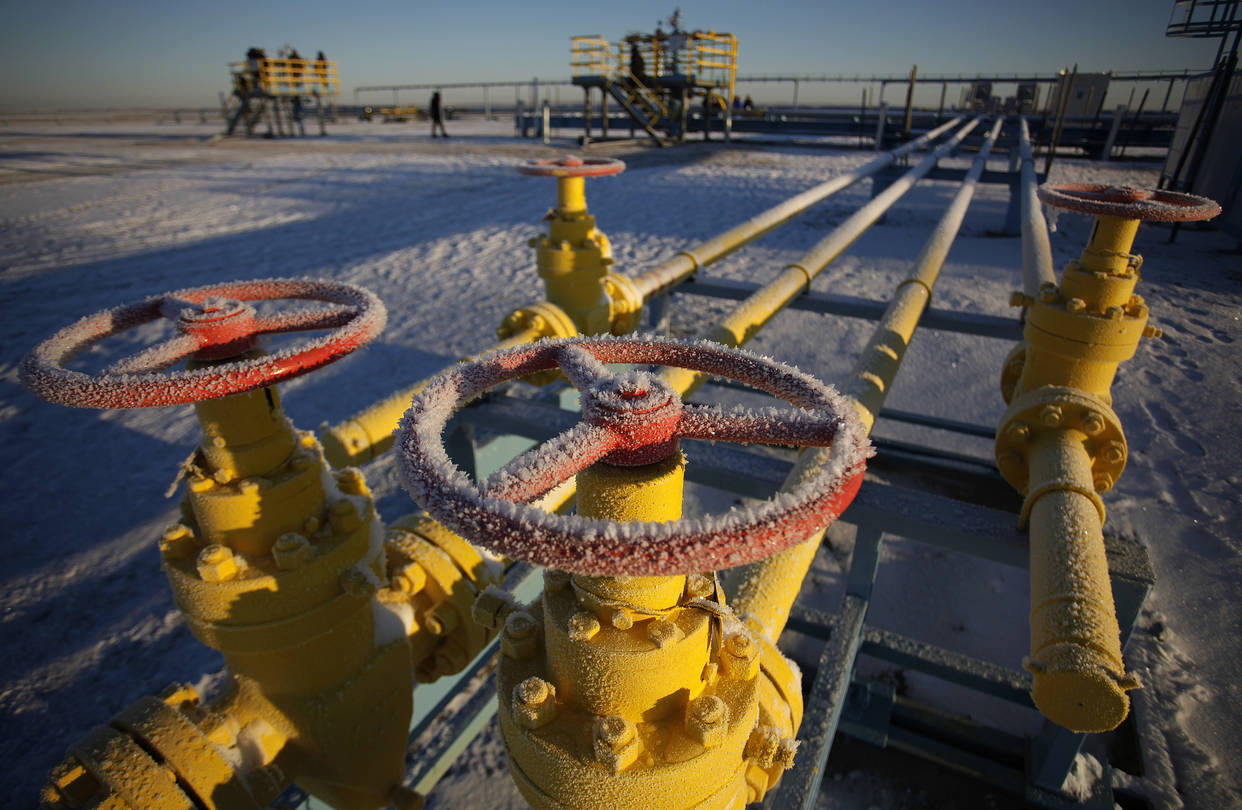Commodities
Current natural gas market news: experts have assessed the consequences of increasing Russian gas supplies to China for Europe

All current natural gas market news today is centered around the Russian Federation. Russia is cutting gas supplies to Europe and at the same time increasing them to China. In Brussels, at least internally, they do not mind that Beijing is buying as much natural gas as possible from Moscow. The consulting firm Accenture Plc. says this is good for united Europe because it helps it fight the energy crisis.
Oil and gas market news: pipeline gas restrains Chinese demand for liquefied natural gas (LNG)
The reason is that Russian natural gas from pipes is holding back demand in China for liquefied natural gas (LNG), which Europeans are now looking for across the world to replace Russian gas, Bloomberg says, citing Accenture director Ohan Kose. Even though the Power of Siberia pipeline exports pipe gas from Russia to China is still a fraction of what Moscow was supplying to Europe until February 24, due to its low price, it is successfully replacing expensive LNG in the Chinese market. Also, new gas pipelines are being built from Russia to China.
“It’s important that Russian gas goes to China,” Kose said last week, “because it reduces China’s demand for LNG and its price.
If you follow global oil and gas market news, you know that China also imports gas through pipelines from Central Asia. Beijing is now trying to buy as much cheap pipeline gas as possible and as little expensive liquefied gas as possible. Because of the pandemic and coronavirus lockdowns and the resulting slowdown of the Chinese economy, Beijing has not yet even entered the spot gas market this year, where, incidentally, it was the main player last year. The appetite for LNG in China, according to forecasts by experts, may remain low not only in August, but also in September.
Current european natural gas market news
At the moment Europe is closely watching the epidemiological situation in the Celestial Empire and the way China is coming out of the blackouts and starts to restore its economy. Economists at Goldman Sachs explained in a research note last week that the less LNG China buys, the more Europe gets.
Accenture believes that if Russia stopped supplying gas to Europe completely, the price of gas could increase fivefold! Of course, this situation will last until spring. Kose is certain that the average price of gas next year will be lower than this year.
Gas consumption and demand is also being held back by the risk of a global economy sliding into recession. According to Accenture, the risk of a global recession would cut gas demand in the EU by 16% next year. Brussels is now persistently urging EU members to reduce gas consumption by 15% this winter. French energy company Engie SA, for example, reports that French residents have already begun to vigorously conserve electricity and reduce their gas consumption.
“The combination of lower demand in Europe and Asia and the fact that Russian gas has found new markets will lower gas prices in the medium term,” Kose forecasts. This is a positive for gas energy news. If the coming winter is harsher than the previous ones, high gas prices will certainly last longer, but they should decrease in the long run.
Commodities
Oil prices rise; U.S. crude inventories plunge, Russia-Ukraine truce eyed
Commodities
India’s Reliance to stop buying Venezuelan oil over US tariffs, sources say
Commodities
Oil prices climb on Venezuela supply worries

 Forex3 years ago
Forex3 years agoForex Today: the dollar is gaining strength amid gloomy sentiment at the start of the Fed’s week

 Forex3 years ago
Forex3 years agoUnbiased review of Pocket Option broker

 Forex3 years ago
Forex3 years agoDollar to pound sterling exchange rate today: Pound plummeted to its lowest since 1985

 Forex3 years ago
Forex3 years agoHow is the Australian dollar doing today?

 Cryptocurrency3 years ago
Cryptocurrency3 years agoWhat happened in the crypto market – current events today

 World3 years ago
World3 years agoWhy are modern video games an art form?

 Commodities3 years ago
Commodities3 years agoCopper continues to fall in price on expectations of lower demand in China

 Economy3 years ago
Economy3 years agoCrude oil tankers double in price due to EU anti-Russian sanctions

























